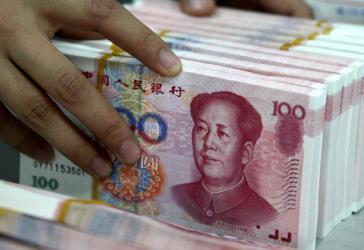
Addressing the recently held 19th congress of the communist party of China, president Xi declared that China had entered a 'New Era'. In political terms, the message is amply clear: more absolute power in his hands for a longer tenure.
It is commonly agreed that China built trade and current account surpluses over successive decades by keeping the yuan artificially weak, which facilitated its emergence as a global manufacturing powerhouse.
Between 2000-2014, Chinese authorities allowed the yuan to appreciate about 27% against the dollar, to encourage domestic consumption and offset persistent criticism of its exchange rate policy.
Since 2014, however, sustained pressure of capital outflows from residents led to a 10% fall in the yuan, despite massive intervention by PBoC, which sold a total of $790 billion in 2015 and 2016.
The moot point here is how much of forex reserves is in liquid form to help defend the yuan? Various estimates put it in the range of $1-2 trillion,
Given the sharp fall in the ratio of forex reserves to broad money during the last five years (22% in 2012 to 13.3% in 2016), it is doubtful if the liquid forex reserves are sufficient to arrest the yuan's fall, if the residents trigger another bout of capital outflows.
Despite capital controls anywhere, if the economic incentives are strong enough, residents will find a way to move money cross-border.
In China, the temptation to do so is rising with its deepening debt problem and the current over-valuation of the yuan, which, as per the BIS, is about 20%.
The overseas tourism outflow rose from 0.9% of GDP in 2012 to 2.2% in 2016.
The logic of economics says that the yuan should depreciate in line with China's fundamentals, counterbalanced by the authorities' need for stability.
The longer it is delayed, overshooting becomes a distinct possibility and a 'Minsky Moment' can happen.
Paradoxically, massive forex reserves, meant to assure stability, may themselves lead to instability. If it happens, reverberations will be felt far and wide, including in India.